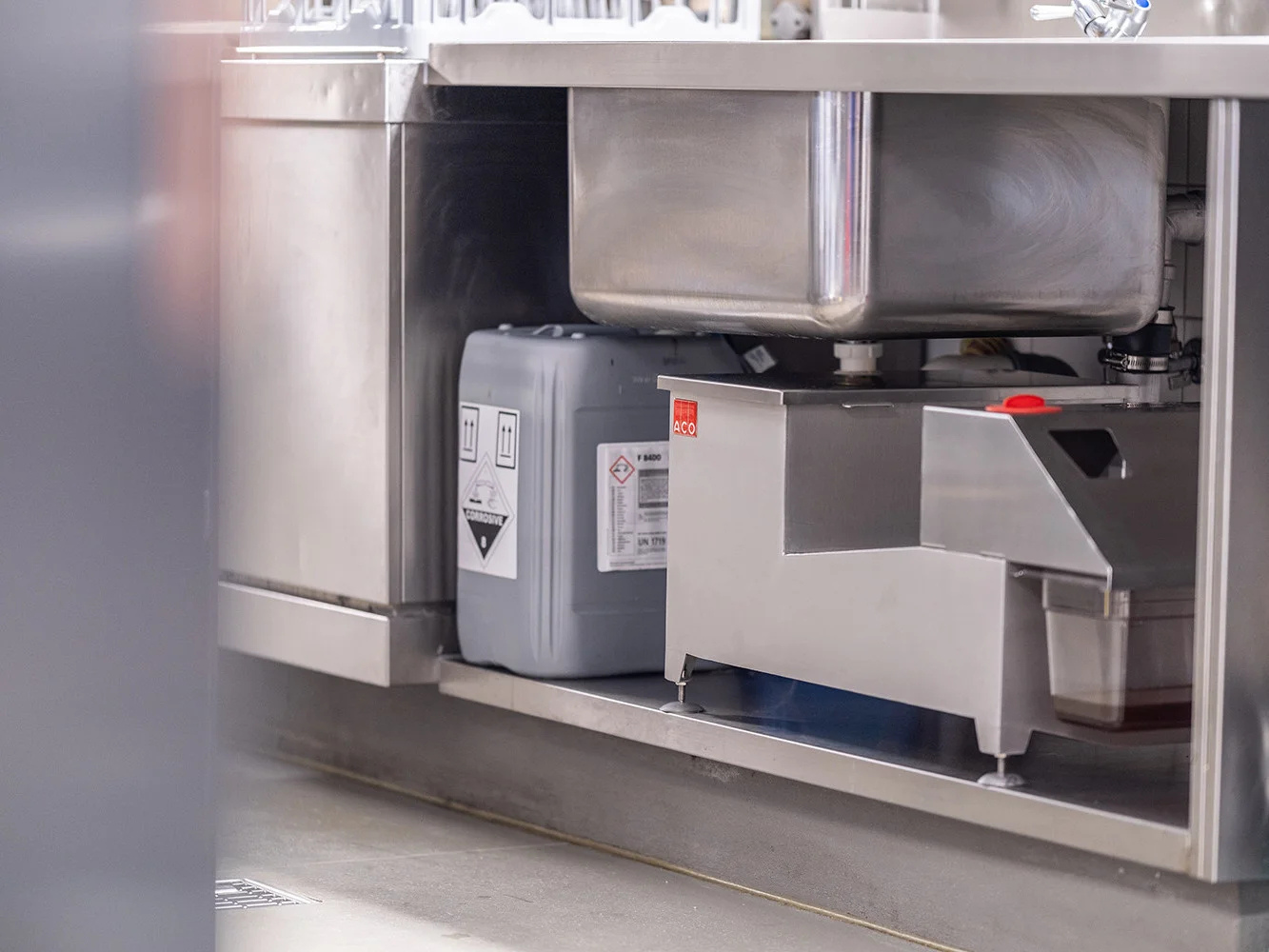In dense urban areas, installing a traditional underground grease separator is often technically or financially unfeasible. Whether due to space constraints, structural limitations, or preservation rules, foodservice operations frequently struggle to meet grease management requirements without invasive construction.
ACO Grease Capture (AGC) offers a reliable, space-saving solution: a compact, above-floor grease separator that can be easily integrated into existing kitchens, even in older or complex buildings.

